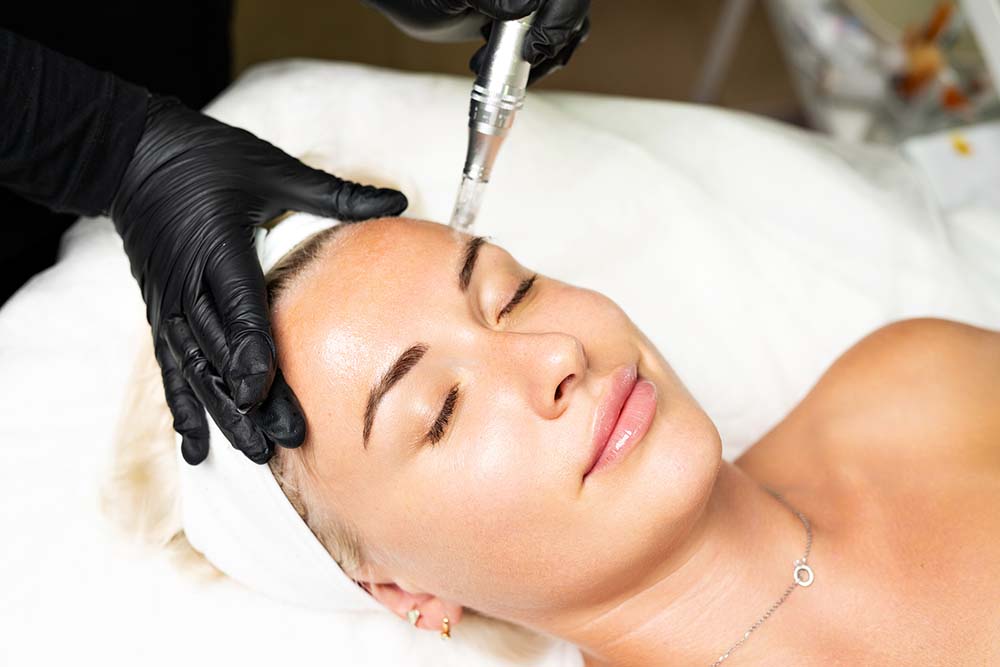Psoriasis is a chronic autoimmune condition that affects millions of people worldwide. It is characterized by the rapid buildup of skin cells, resulting in red, scaly patches on the skin’s surface. While psoriasis is not curable, it can be effectively managed with various treatments. In this article, we will delve into what psoriasis is, how it can be treated and managed, and when it is essential to seek help from a dermatologist.
What is Psoriasis?
Psoriasis is a complex condition that primarily affects the skin but can also impact other parts of the body. It occurs when the immune system mistakenly activates the skin cells’ growth cycle, causing them to multiply rapidly. As a result, new skin cells are produced faster than the old ones can be shed, leading to the accumulation of thick, red patches with silvery scales.
Types of Psoriasis:
- Plaque Psoriasis: This is the most common type, accounting for about 80% of cases. It manifests as raised, inflamed patches covered with silver-white scales.
- Guttate Psoriasis: Often triggered by a bacterial or viral infection, this type appears as small, drop-like lesions on the trunk, limbs, and scalp.
- Inverse Psoriasis: Typically found in skin folds, such as the armpits, groin, and under the breasts, this form presents as smooth, red patches.
- Pustular Psoriasis: Characterized by pus-filled blisters surrounded by red skin, it can be localized or generalized, affecting large areas of the body.
- Erythrodermic Psoriasis: This is the rarest and most severe form of psoriasis, causing widespread redness and shedding of the skin.
Psoriasis Treatment and Management Options
While psoriasis has no definitive cure, there are several treatment and management strategies available to alleviate symptoms, reduce flare-ups, and improve the overall quality of life. The choice of treatment depends on the type and severity of the condition, as well as individual factors. Here at Dermablue, we’re able to help you assess the right treatment options for your psoriasis. Here are some common approaches.
Topical Treatments
These include creams, ointments, lotions, and shampoos that are applied directly to the affected skin. They often contain corticosteroids, vitamin D analogs, salicylic acid, or coal tar to reduce inflammation and remove scales.
Phototherapy
Exposure to controlled amounts of ultraviolet light can help slow down the rapid cell growth in psoriatic skin. Phototherapy can be administered in the form of UVB light, narrowband UVB, or psoralen plus ultraviolet A (PUVA).
Systemic Medications
For more severe cases, oral or injectable medications may be prescribed to modulate the immune system and reduce inflammation. These medications include methotrexate, cyclosporine, acitretin, and newer biologic drugs.
Lifestyle Modifications
Certain lifestyle changes can complement medical treatments and improve psoriasis management. These may include stress reduction techniques, regular exercise, maintaining a healthy weight, avoiding triggers like smoking and excessive alcohol consumption, and moisturizing the skin.
When to Seek Help from a Dermatologist
While mild cases of psoriasis can often be managed with over-the-counter treatments, it is crucial to consult a dermatologist when experiencing the following:
- Severe symptoms or rapid worsening of psoriasis.
- Joint pain and swelling, indicating psoriatic arthritis.
- Difficulty performing daily activities due to psoriasis symptoms.
- Development of infections, particularly if accompanied by fever.
- Lack of response to previous treatments or concerns about their side effects.
- Emotional distress or a significant impact on quality of life.
If you’re currently experiencing psoriasis, our DermaBlue experts can help you find ways to manage and treat it. Contact us today to learn more.







